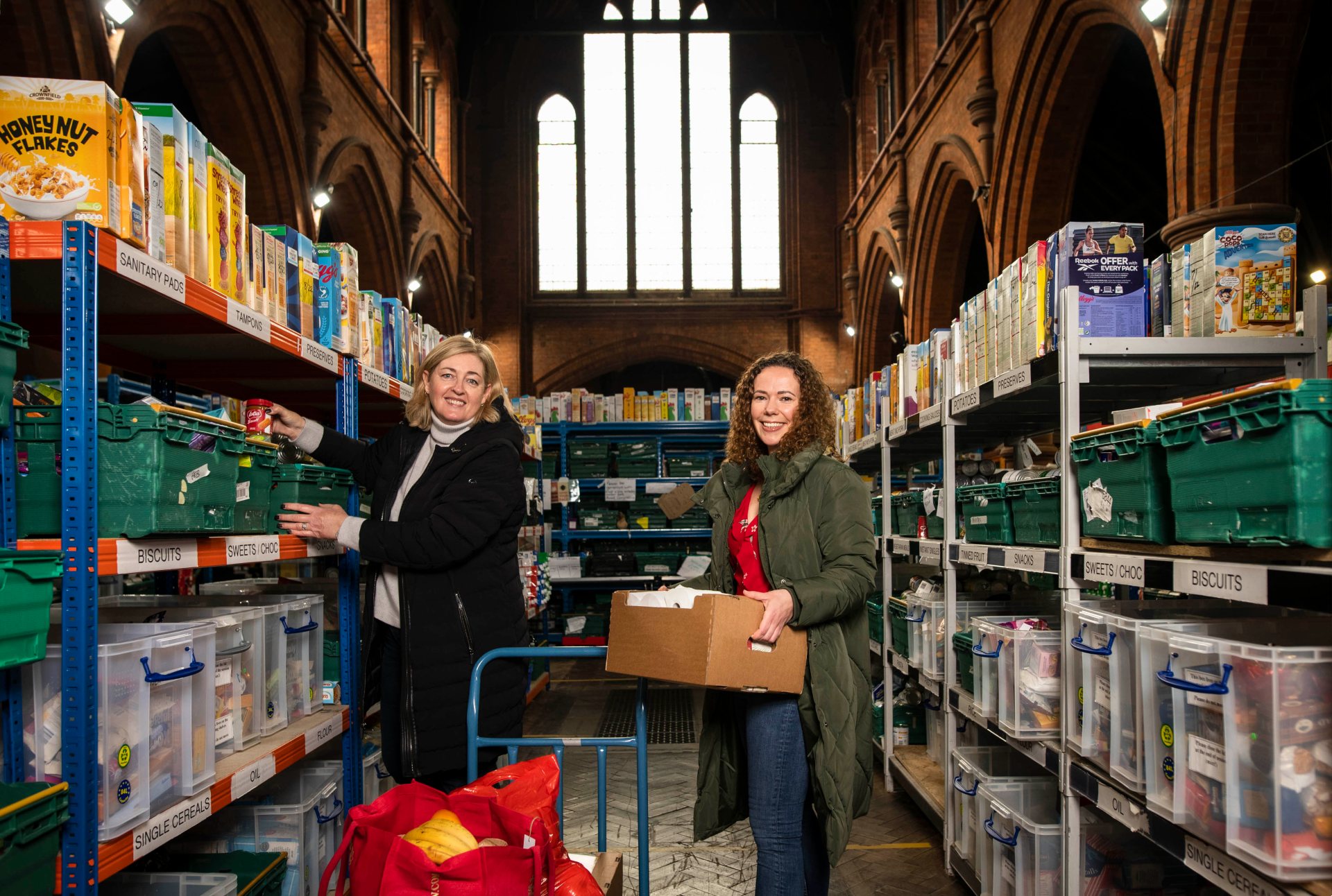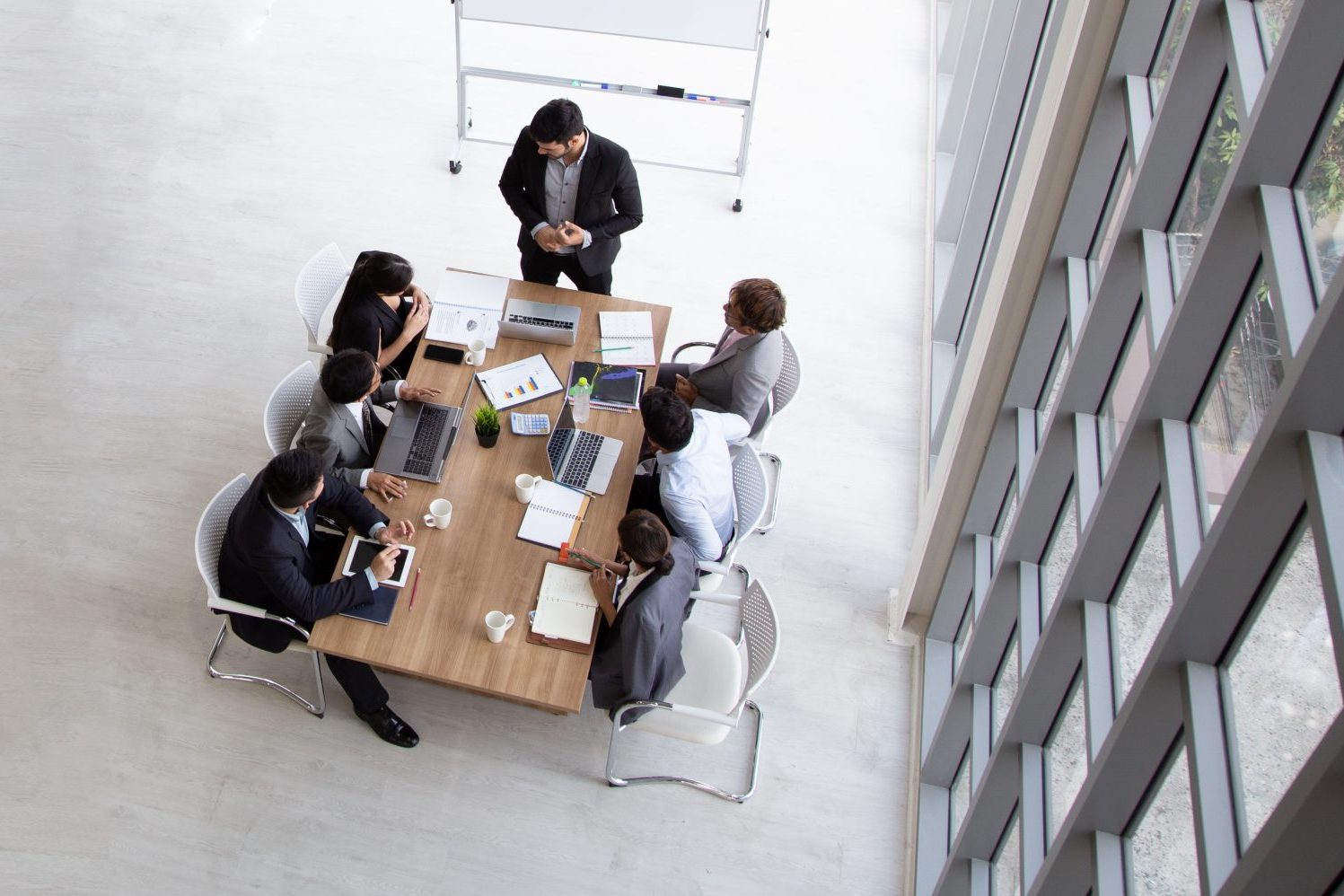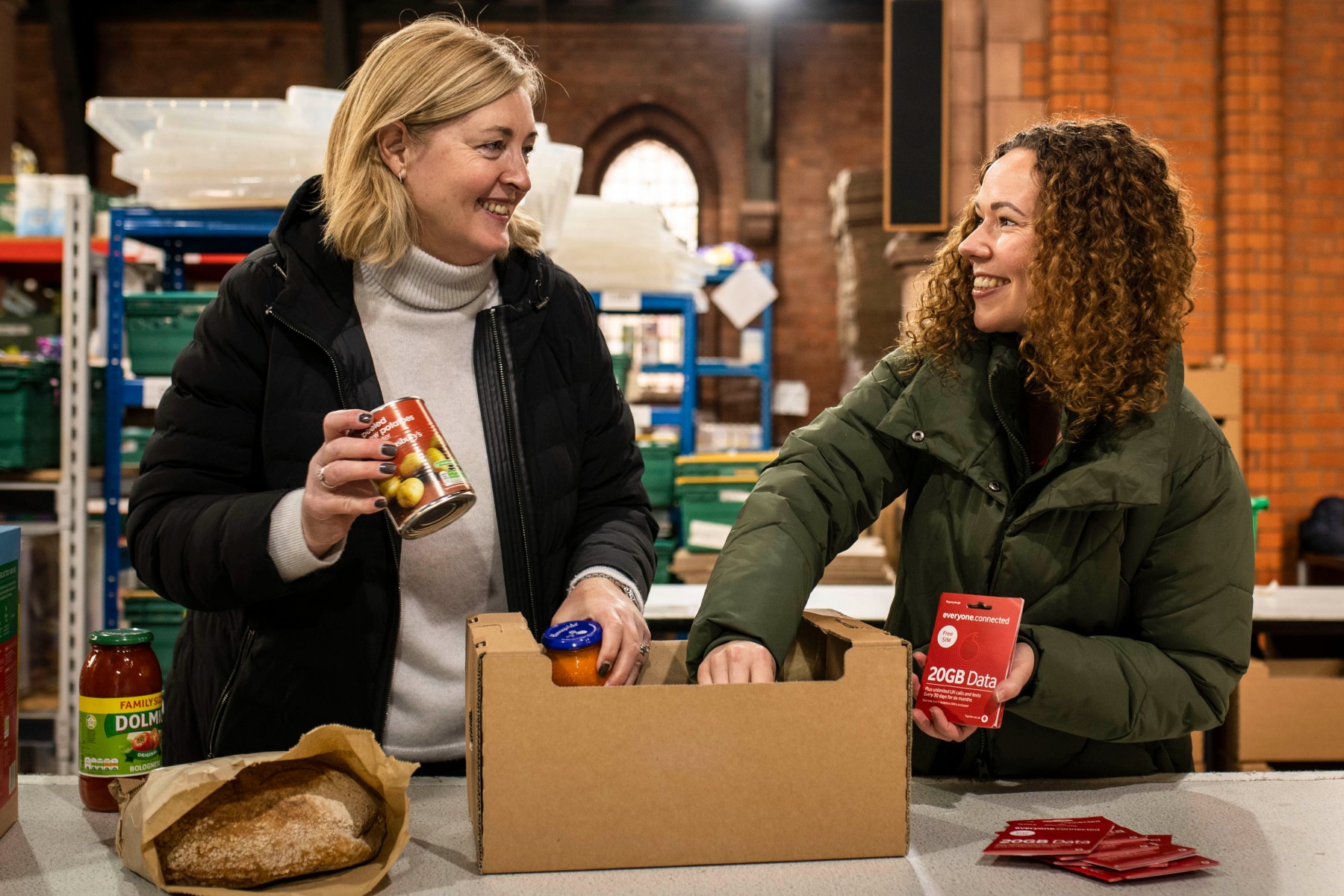A ukelele group, expert latte art and free computer lessons are three things you’d normally have to search for in very different locations. Not in Woodley, Stockport, however – where local community learning partnership Starting Point delivers all three to a close-knit community in need of support.
“It’s absolute chaos, but I love every second of it.”
Luckily, there’s been a lot of seconds for Chief Operating Officer Nicola Wallace Dean to love, having led the social enterprise for almost 15 years, under the guidance of mum Anne Wallace OBE.
Anne – who has run the family fish and chip shop next door since moving to the area in 1986 with her own parents – is where the community story really started.
Realising that, for the fish and chip shop to survive following the 2009 recession, the surrounding shops had to survive also, Anne opened the empty unit next door to create a meeting place for people in the community.
“We were initially set up as a coffee shop, offering additional space in the form of community rooms,” says Nicola. “But we very quickly realised that, because of the older demographic here, it was digital inclusion that people needed.
“We now run 12 sessions a week in different places within Stockport, all of which are free for people to access, including computer classes in the café itself.”
Vodafone works with Liverpool City Region to roll out digital inclusion scheme
Liverpool is a city recognised worldwide for its heritage in music, sport and culture, earned across decades of success on the global stage. Today, however, some residents are facing a very modern problem: digital deprivation.
National network, local impact
The most recent Lloyds Consumer Digital Index suggests the UK has 6.8 million people – or 13% of the population – living with ultra-low digital skills. More than two thirds of this ‘ultra-low’ cohort are 70 or older, while 59% earn up to just £20,000 a year.
Whether this is due to a lack of internet access, the skills themselves, or both, it paints a stark picture of the digital divide that exists nationally. Digital exclusion that has only been made worse by the recent pandemic and resulting cost-of-living crisis.
To turn the tide, Starting Point is one of more than 5,000 organisations that comprise the National Digital Inclusion Network – a scheme supported by Good Things Foundation, the UK’s leading digital inclusion charity.
Together, these companies work to bridge the digital divide within their local communities, often doing so from the most unlikely of places – such as Starting Point’s café, next door to the fish and chip shop.
“For the last 13-14 years, we’ve been focused very much on digital inclusion,” continues Nicola. “We run a big Digital Champions Programme, which is funded by the National Lottery Community Fund. This allows us to match trained volunteers with other organisations that wouldn’t traditionally do digital stuff, like food banks and the GP practice.”
Working with Good Things Foundation, where Nicola also acts as a trustee, opens up a range of opportunities for organisations like Starting Point. This includes the Learn My Way initiative, a free online platform that helps more than 70,000 learn basic digital skills each year.
The software is made freely available for digital champions to use in libraries and community centres, with thousands of Digital Inclusion Hubs across the country taking advantage.
Mind the connectivity gap: Vodafone and Good Things Foundation highlight digital divide
Five million people are currently missing out on 5G in the UK, creating a ‘connectivity gap’ that threatens to widen the existing digital divide between some rural or deprived communities and the rest of the country.
Driven by the data
Beyond this, Starting Point also has a helpline and a devices lending library. For Nicola, however, the “biggest gamechanger” has been the , which acts like a foodbank but for mobile data for those without internet access.
Upon joining the scheme in 2022, Vodafone pledged 24 million gigabytes of data – enough to connect 200,000 people for six months. It has since made good progress on this commitment, providing free data for community groups and the people they support.
“We’ve done initiatives around lending devices in the past, in sheltered schemes and care homes,” explains Nicola, “but we could never quite get to grips with the issue around data, as it was never sustainable for us to buy SIM cards ourselves.”
Now, with the help of Good Things Foundation and Vodafone, the group has around 400 SIMs currently in use for those who most need them. This falls under Vodafone’s everyone.connected campaign, which is committed to helping four million people and businesses cross the digital divide by the end of 2025.
Meanwhile, the café runs its own data bank three times a week, from whichever coffee table is free at the time, while being careful not to clash with their weekly hosting duties for the local ukelele group.
“A small organisation like ours just could not have done that, so the formation of the databank has been phenomenal – it’s really allowed us increase our reach and help more people.”
As a result, Starting Point can support those in the nearby refugee hotel, who may already have a device but no SIM card. Likewise, it can help families that are trying to tether multiple people through a single device, as well as issue SIM cards in the local homeless charity, giving individuals at least some form of communication and making them potentially safer than they were before.
LandAid CEO on how Vodafone SIMs can act as a lifeline to those in need
Vodafone UK’s everyone.connected initiative helps put free, data-loaded SIMs into the hands of those who need them most, including people relying on the services of homelessness charity Centrepoint.
Starting a new cycle
These examples prove just how indiscriminate digital exclusion can be, while also bringing home the reality that poverty, of all kinds, is extremely interlinked.
If someone is experiencing food poverty, for example, there is a high chance that they also can’t afford a device or data. In turn, they may not be able to contact a GP, so their health outcomes are likely to be worse, making finding – and keeping – a job even more difficult.
“You see it time and time again – the inevitability of it is probably the worst part of the job,” says Nicola. “But to be able to do just one thing that can potentially help stop that cycle from happening is great.
“For instance, if we can get you online, then we can help you complete your work diary from JobCentre Plus or manage the diabetes that you’ve just been diagnosed with.
“Then, all of this other stuff that was going to happen later down the line now might not, simply because we’ve been able to fix that one particular issue that set it all in motion.
“That’s why we’re called ‘Starting Point’ – your life’s not going to be perfect after having one conversation with us, but we’ll start you off on a path that will eventually help get you there.”
Stay up to date with the latest news from Vodafone by following us on LinkedIn and Twitter/X, as well as signing up for News Centre website notifications.










